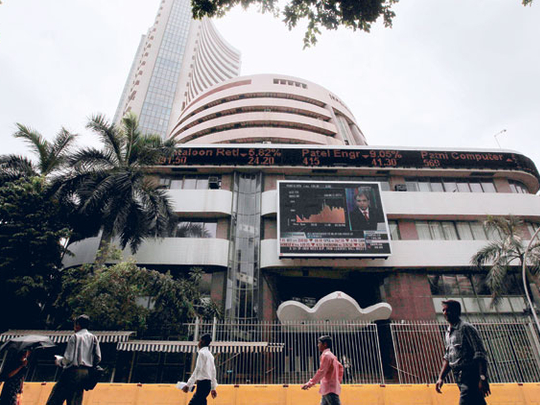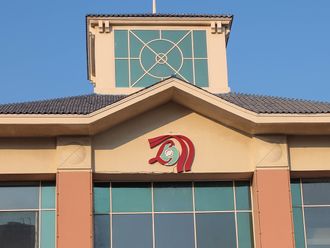
Mumbai: Rattled investor sentiment across world equity markets will take a toll on Indian shares, although the nation's economy is firmly on the upswing and is not directly exposed to the debt problems threatening to sweep more countries in Europe.
The possibility of the Greek debt crisis setting off a domino effect has send stocks tumbling in the US, Europe and Asia, with Thursday's plunge of nearly 1,000 points at one stage on Wall Street being the biggest-ever intraday dive.
"There will be no respite until the global situation improves," said equity trader Anmol Dalal. "Investors are jittery and there is nothing to calm the fears. The best option is to stay in cash."
Problems
He said stronger-than-expected US jobs data on Friday failed to halt the stocks fall on Wall Street, indicating the euro zone financial problems will need to be addressed for investors to regain confidence.
The big worry facing Indian bourses is the likely impact on foreign institutional investors (FIIs), who have been major buyers of stocks and the key driver for the market.
"I wouldn't be surprised if the FIIs start to pull out," said Dalal. "Redemption pressure is rising and they will be under greater pressure to take money from India to make up shortfalls elsewhere."
Data from the Securities and Exchange Board of India showed the FIIs were net sellers of $277 million (Dh1 billion) in the first five days of May. The funds own $79 billion of shares, with $6.4 billion coming in so far this year.
The outflow was just a trickle compared with more than $2 billion that investors withdrew from European equity funds in the week to May 5, according to Massachusetts-based research company EPFR Global.
"The damage Greece's fiscal problems might do to bank balance sheets, Europe's growth prospects and the ability of riskier sovereign borrowers to tap credit markets kept investors on edge going in May," the firm said in a statement.
The top-30 Sensex shed 4.5 per cent last week to 16,769.11 points, its lowest close since the end of February. In 2009, the widely tracked benchmark had soared 81 per cent as FIIs ploughed in a record $17.5 billion.
The fall also spooked the rupee and sent it down 2.5 per cent last week, its biggest weekly slide in 14 months. It closed at 45.48/49 against the US dollar, with losses held in check by central bank intervention.
Market pundits said investors should use the slide to start accumulating blue-chip stocks as the economy was set to expand at a faster clip and demand was picking up.
"This as an opportunity to grab some stocks on the cheap," said Biju Dominic who advises retail clients in Mumbai. "The economy is fundamentally on a strong footing and this is bound to reflect in higher earnings down the road."
The $1.3 trillion economy, Asia's third-largest after Japan and China, probably grew 8.6 per cent in the last quarter — the fastest pace in over two years — Kaushik Basu, the chief economic adviser to the finance ministry, said last week. The data is expected at end of May.
Goldman Sachs said buying opportunities would emerge in central and eastern Europe, the Middle East and Africa after the sell-off.
"Sentiment will likely continue having a negative impact on CEEMEA markets, especially Russia and Turkey, however we believe that they are currently in the sweetspot of accelerating gross domestic product growth and attractive valuations," the US brokerage wrote in a report.
The writer is a journalist based in India











